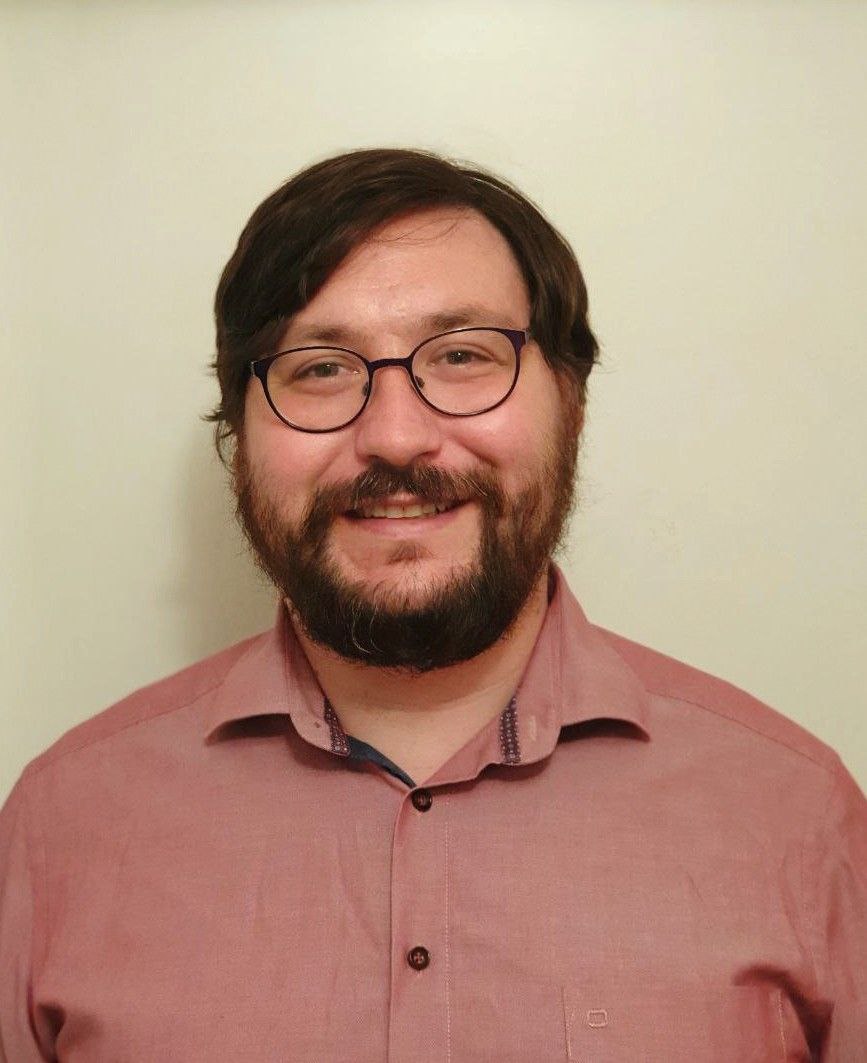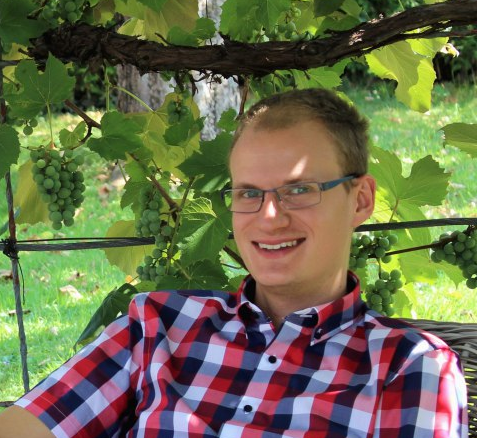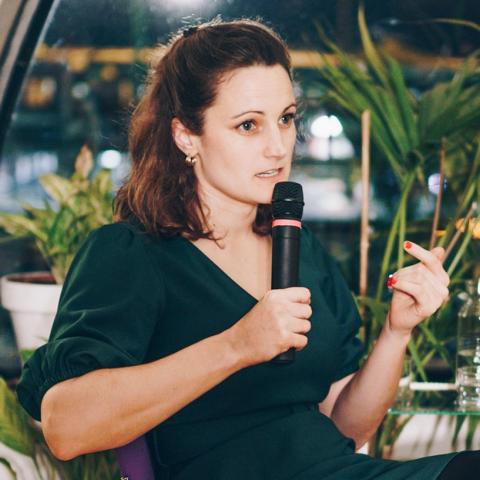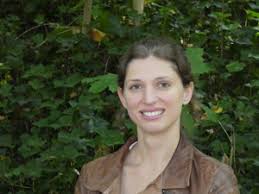Past Recipients of the Simon Young Scholar Prize
-
he 2022 EAEPE Simon Young Scholar Prize was awarded ex aequo to 3 different young scholar EAEPE conference papers to (1) Joel Rabinovich and Niall Reddy on "Financialization, shareholder value orientation and short-termism: Evidence from US non-financial corporations 1998 – 2018”, (2) Jan Schulz and Daniel Mayerhoffer on "A Network Approach to Consumption" and (3) Jerome Deyris on "What's new under the Frankfurt climate? The words and deeds of the ECB in the age of capitalocene".
Joel Rabinovich and Niall Reddy
.jpg)

We are thrilled and honoured to be awarded the EAEPE Herbert Simon Young Scholar Prize for our paper “Financialization, shareholder value orientation and short-termism: Evidence from US non-financial corporations 1998 – 2018”. This was an arduous paper to write, requiring to merged five different databases and involving a very large number of regressions and robustness checks. Our results challenge much of the conventional wisdom on the subject - which can be daunting for young scholars. We are therefore doubly grateful for the support and encouragement conferred by this award.
Our paper investigates the claim that shareholder value orientation (SVO) encourages the adoption of short-termist business models focused on boosting returns to shareholders at the expense of long term performance and productivity upgrading. We note that the quantitative evidence in favour of this theory is mostly confined to showing that SVO lowers investment - without showing that this harms competitiveness. Instead of looking solely at investment, we look at how SVO impacts 'real performance' measured in terms of productivity, market share and profitability. We also adopt a novel empirical strategy, using measures of shareholder power and managerial incentivisation as our main independent variables, rather than trying to proxy for SVO. This allows us to account for the possibility that different kinds of shareholders have different effects on governance - something elided in much of the literature. We find that this is indeed the case. Our results suggest that short-termism is not an outcome linked to shareholder primacy in general, but rather to the influence of specific kinds of impatient investors. This suggests that it is necessary to account for the complex and varying strategies adopted by firms in the shareholder era, rather than assuming the existence of a single uniform business model.Jan Schulz and Daniel Mayerhoffer


It is a great honor and privilege to have received this year’s EAEPE Herbert Simon Prize for our paper “A Network Approach to Consumption”.
Our paper attempts to model upward-looking emulative consumption à la Veblen from the bottom up. The relevance of this channel for the aggregate effects of inequality on growth, private debt, and financial fragility has been thoroughly demonstrated both theoretically and empirically, not least in many different contributions to EAEPE’s annual conference in the last years. Nevertheless, we found that these approaches often do not fully consider the structured nature of everyday interactions on which emulation is based. To address this issue, we integrate emulative consumption behavior into a network that replicates the salient stylized facts of inequality perceptions, both overall as well as along gendered and racialized dimensions, and of empirical network topologies.
The resulting model is an evolutionary alternative to lifecycle theories based on permanent income. We show that our model based on current income only is observationally equivalent to this workhorse formulation with much less demanding assumptions. We also demonstrate that the network topology and segregation in which this consumption takes place mediate the effect of inequality on aggregate consumption, offering a potential explanation for the ambiguous empirical results on consumption externalities in the applied literature. We are currently working to integrate our attempt into a Post-Keynesian framework in which we consider the interplay of the functional and personal distribution of income and a model with explicit consideration of the gendered and racialized dimension of inequality. In the spirit of EAEPE, we thus draw on the various institutionalist, complexity, evolutionary, feminist and Post-Keynesian strands and highlight their complementarities in our ongoing work.
This recognition of our work is an immense boost to our motivation and fills us with joy. We are incredibly thankful for EAEPE not only for making our work visible but also for continuing to provide a much-needed forum for pluralist economics and being the source of many stimulating thoughts and inspiration for both of us. We are looking forward to many EAEPE annual conferences and discussions to come!
Jerome Deyris

I am very pleased and honored to be one of the recipients of the 2022 EAEPE Simon Young Scholar Prize for my paper on the emergence of a climate consensus at the European Central Bank. This article is part of my PhD thesis on the greening of central bank actions and consists in an empirical investigation of a specific institution. It uses a mixed methods empirical strategy, combining quantitative and qualitative discourse analysis with semi-structured interviews with central bankers and members of the European Parliament. The objective of the paper is to document how the balance of power within the Board of Governors has shifted in recent years, moving back and forth between a prudential perspective based solely on financial risk and a more ambitious promotional perspective seeking to foster the transition to a low-carbon economy.
Investigating this rapidly evolving topic has been challenging, and I am grateful to all the researchers who took the time to engage with my work and help a young doctoral student. This would not have been possible without networks and conferences such as EAEPE that bring together a community of heterodox political economists from Europe and beyond and allow young scholars to get advice and feedback from their peers. I am proud to be able to present my work there, and I am convinced that I will come back again this year with new ideas and perspectives to improve my research.
-
The 2021 EAEPE Simon Young Scholar Prize was awarded to Patrick Mellacher for his paper titled " COVID-Town: An Integrated Economic-Epidemiological Agent-Based Model"
Patrick Mellacher

It is a great honor to receive the EAEPE Herbert Simon prize for my paper “COVID-Town: An Integrated Economic Epidemiological Agent-based model”.
“COVID-Town” is an agent-based model to explore the economic and public health impact of the Covid-19 crisis under varying policy scenarios. The model consists of an artificial economy, which is populated by agents who differ with regard to their social class, employment, family status, leisure preferences and connections in a social network. These agents work, consume, rest and spend their leisure time according to routines that depend on the time and day of the week. This agent heterogeneity is empirically micro-founded using many sources such as time use data, demography, employment statistics etc.
A characteristic feature of my model is that it explores relationships and trade-offs that are largely ignored by other models. For instance, in my model, if schools are closed, this greatly helps to curb the transmission of the virus, but it also affects families with little children, as family members have to stand in as care givers. Thus, closing schools also has economic effects which are unevenly distributed among the population.
While simpler models also have their merits, my paper shows that such a more complex agent-based approach can make a difference with regard to the results, and I hope to further improve and deepen my work on this topic in the near future. Winning this prize certainly gives me a massive motivation boost to do so.
I have worked many days and nights on this model and paper. Seeing that this research is valued at the EAEPE conference, which is so important for my field of research, really fills me with joy. While I hope that this particular line of research will become less relevant soon, I look forward to continuing my work on agent-based economics and evolutionary macroeconomics and discussing this work at many EAEPE conferences to come. Thank you very much!
- The 2020 EAEPE-Simon Young Scholar Prize was awarded to Ingrid Harvold Kvangraven for her conference article on Beyond the stereotype: Restating the Relevance of the Dependency Research Programme.
|
Ingrid Harvold Kvangraven
|
It's a true honor to receive the EAEPE-Simon Young Scholar Prize for my paper on dependency theory. This paper grew out of my PhD thesis and is definitely the paper I've worked on the longest. It is therefore encouraging to see that all the labor paid off! What's more, this award was particularly significant for me because of the marginalization of dependency scholarship across both mainstream and heterodox departments. In face of strong resistance to such scholarship, I see the Prize as a sign that dependency theory is gradually re-gaining traction among heterodox economists. In the paper, I argue that the scholarship can be best understood as a research programme, with four core tenets that are key for understanding uneven development: a global historical approach; theorizing of the polarizing tendencies of global capitalism; a focus on structures of production; and a focus on the specific constraints faced by peripheral economies. While each of these elements can be found in many contemporary theories, what makes dependency theory unique — and a particularly strong research programme — is the combination of these elements. The paper goes on to demonstrate how such an approach can help explain both industrialization in South Korea and how the fragmentation of global value chains has impacted industrialization in Indonesia. I am deeply grateful to EAEPE for remaining an open and tolerant conference, where this kind of scholarship can be fruitfully discussed. I look forward to many more conferences and discussions with the EAEPE community. |
- The 2019 EAEPE-Simon Young Scholar Prize was awarded to Kohler, K. (2019) for his conference paper on Finance-driven business cycles in emerging markets? An empirical assessment of Minskyan endogenous cycle approaches
|
Karsten Kohler
|
I’m excited and honored to be one of the recipients of the EAEPE-Simon Young Scholar Prize. EAEPE is one of the most important networks for researchers interested in interdisciplinary and pluralist approaches to Political Economy. Its annual conference provides a fantastic opportunity for young researchers to learn about ongoing research but also to get feedback on work-in-progress from an open-minded and friendly audience of experts. Receiving the Young Scholar Prize boosted my motivation to continue research in Political Economy that goes beyond the confines of conventional economic theory. My article that was awarded the Young Scholar Prize investigates sources of finance-driven business cycles in emerging markets. It builds on a Minskyan approach that conceives business cycles as the outcome of endogenous interactions between finance and the real economy. This stands in contrast with mainstream business cycle theories in which cycles are driven by exogenous shocks. My article presents evidence for the presence of endogenous cycle mechanisms between output and exchange rates in several emerging markets. The article thereby contributes to a Minskyan analysis of business cycles in emerging markets by suggesting that flexible exchange rates, which are often considered a shock absorber, can in fact be an endogenous driver of macroeconomic fluctuations. The paper constitutes part of a broader research plan on flexible exchange rates as a source of macroeconomic instability in emerging market economies. I look forward to presenting further work on this topic in future EAEPE conferences. |
- The 2018 EAEPE-Simon Young Scholar Prize was awarded ex aequo to Shubbak, M. (2018), “Innovation capability, network embeddedness and economic performance: profiling solar power innovators in China” as well as Gräbner, C., Strunk, B. (2018), “Pluralism in economics: its critiques and their lessons”.
|
Mahmood Shubbak
|
It has been my great pleasure to receive the 2018 EAEPE Simon prize and to join past recipients who I have long admired and respected. I will never forget my story with this prize. It was a few months after obtaining my PhD, I attended the EAEPE annual conference in Nice (France) to present one of my cumulative dissertation articles. During the conference, several people were congratulating me. I was wondering: "is it for obtaining my PhD? But how did all those people know?", until a friendly French lady approached me and said: "You have to register for the conference Gala Dinner, because your paper was selected to win the EAEPE Simon Prize!". I was very happy not only because my work was appreciated, but also -more importantly- because it assured me that in this world still there are people who can objectively evaluate a research, regardless of the race or origin of its author. And that is EAEPE, a forum for free minds seeking a fair and more realistic approach to economic theory. |
|
Claudius Gräbner and Birte Strunk
|
Our paper “Pluralism in Economics – its critiques and their lessons” deals with the criticisms that are regularly posed against pluralism. Our aim was to evaluate these criticisms analytically by using arguments from both contemporary and classical philosophy of science. Doing so, we distinguish less convincing criticisms from those we think should be taken seriously by pluralists since they indeed contain a potential lesson to be learned. Thus, the paper both reaffirms the epistemological benefits of plurality, yet also highlights the challenges that come with plurality: first, the challenge to ensure communication between distinct research approaches, and, second, the challenge to maintain a certain standard of quality that respects the multiplicity of yardsticks for ‘quality’ in distinct research programs. We believe that the success of the pluralist movement depends on pluralists not neglecting these challenges, but actively accepting their existence and finding strategies to address them. Our goal with the paper was to open a space of self-reflection within the pluralist and heterodox community that facilitates the navigation through the ambiguities and pitfalls of pluralism, such as unification as an academic movement on the one hand, and staying ‘plural’ enough to preserve integrity on the other. In times where more and more academic, policy and business approaches draw from interdisciplinary perspectives, such an approach might also yield insights that help us reflect on the status and role of science beyond purely economics. We also hope that some of the thoughts are stimulating beyond academia and help us to embrace social diversity by not neglecting its challenges, but to actively work on ways to address them effectively. It was great to see that EAEPE recognizes the value of such theoretical work and we feel very honoured to have been chosen as the co-recipients of the 2018 EAEPE Herbert Simon Prize. |
- The 2017 EAEPE-Simon Young Scholar Prize was awarded to Pedro Mendes Loureiro (SOAS, University of London) for his paper on "Capital accumulation and class inequality in Brazil, 1992-2013".
|
Pedro Mendes Loureiro
|
Receiving the 2017 EAEPE Simon prize was a milestone in my career, which gave me a big boost in terms of motivation, feedback, visibility and recognition. In the often-lonely process of writing a PhD thesis, when academic exchanges are regularly restricted to one’s supervisor and moments of external validation are few and far in between, receiving the EAEPE Simon prize was a fantastic boost to my motivation. It gave me the impetus to carry on with my research and showed me its strengths, on which I capitalised going forward. Later, drawing on feedback I received at EAEPE and from other colleagues, the paper was published in a prestigious journal, the Cambridge Journal of Economics. The prize, the publication, and the visibility they both gave me were instrumental in the labour market as well. Showcasing EAEPE’s inter-disciplinary and pluralist commitments, the prize and its unfolding helped me get a position as Lecturer in Latin American Studies at the University of Cambridge. EAEPE do a fantastic service to the profession, of which the young scholar prize is a key element.
|
- The 2016 EAEPE-Simon Young Scholar Prize was awarded to Hanna Szymborska (University of Leeds) for her paper on "Inequality in the Twenty-First Century – Economic Theory Revisited".
|
Hanna Szymborska
|
I was in the third year of my PhD when I applied for the EAEPE Simon prize in 2016. It was the first complete piece of research that I have presented to the world. I knew that the EAEPE Simon prize was very competitive, and that I was up against a number of fantastic contributions from other early-career researchers. And so, I was truly elated when I got the good news about becoming the winner of the 2016 EAEPE Simon prize. Obtaining the prize gave me a huge boost of confidence in my academic work. My research received attention from the heterodox economics community, and I obtained feedback from the top researchers in my field and my peers. This improved my paper greatly and helped me prepare it for journal submission. The paper is important in my research because it solidified my vision for analysing inequality through exploring the relationship between the macro- and the microeconomic dimensions of wealth disparities in advanced capitalist economies. Its main contribution to my field of research is to highlight the need to rethink how the household sector is viewed in Post Keynesian macroeconomic analyses, and how a more nuanced view of household balance sheets allows to go beyond the traditionally conceived categories of workers and capitalists to understand inequality in times of financialisation. It reflects the broader ambition of my work to understand how macroeconomics affects inequality across class, gender, and race, which is inspired by, and contributes to, the plurality of EAEPE perspectives. Winning the prize also became a unique opportunity to nurture new friendships and collaborations in the academic community. I am very grateful to the EAEPE Simon prize selection committee for appreciating my work. |
The 2015 EAEPE-Simon Young Scholar Prize was awarded to two young scholars:
- Glenn Lauren Moore "What has caused recent escalating household debt in OECD countries? Property price booms or inequality?"
- Mathilde Bauwin "Gender Bias in Microcredit Allocation: Is Discrimination Towards Women Always Positive? A Case Study in Tunisia"
|
Mathilde Bauwin
|
Being awarded the 2015 EAEPE Simon prize brought me first a lot of personal pride! I was at the end of my first year of PhD, I had no idea about the quality of my work, so it clearly gave me confidence to pursue my research. I suppose that it was also a value-added on my resume when I was a PhD candidate but I have no concrete proof of this. After the PhD, I left the academic world to go back where I came from, that is to say NGOs working in development, where I can bring my new skills, but where such prizes do not make any difference unfortunately. This paper was my first one and influenced the rest of my research in the framework of the PhD; it gave evidence of discrimination against women in microfinance, especially regarding the credit amounts they are granted compared to men, all else being equal. It was only the 3rd paper (that I know!) to show this result but in a different context. However, as I left the academic world very quickly (I finished my PhD in 3 years), I did not take the time to have it published, so I guess unfortunately, its long-term contribution is limited. |
In 2014 the EAEPE-Simon Young Scholar Prize was awarded to Federico Bassi for his paper on "Aggregate demand, capital accumulation and “genuine” hysteresis in a Post-Keynesian model of growth" as well as Kota Kitagawa for the paper on “General Statutory minimum wage Debate In Germany: Degrees of Political Intervention in Collective Bargaining Autonomy”
In 2013 the EAEPE-Simon Young Scholar Prize was awarded to Alyssa Schneebaum for her article, 'Motherhood and the Lesbian Wage Premium'.
In 2012 the EAEPE-Simon Young Scholar Prize was awarded to Zoltán Bajmócy and Judit Gebert for their article, 'How Is Innovation Policy Informed: Utilitarianism versus the Capability Approach'.
In 2011 the Simon Prize was not awarded.
In 2010 the Simon Prize was not awarded.
In 2009 the Simon Prize was awarded to Luis R. Martinez Armas for his article, 'Good Predictions and Bad Policies'.
In 2008 the Simon Prize was awarded jointly to David Gindis for his article, 'From Fictions and Aggregates to Real Entities in the Theory of the Firm', later published in 2009, Journal of Institutional Economics, 5(1): 25-46, and to Federico Sallusti for his article, 'Shared Cognitive Resources, Governance Forms and Learning Processes: A Classification of Strategic Alliances'.
In 2007 the Simon Prize was awarded jointly to Juliette Tendjoukian for her article, 'Restructuring and Growth in Albania: An Institutional Approach', and toErik Stam for his article, 'Entrepreneurship and Innovation Policy'.
In 2006 the Simon Prize was awarded to Georgina M. Gómez for her article, 'A Market in the Making; the Argentina Red de Trucque'.
In 2005 the Simon Prize was awarded to Pasquale Tridico for his article, 'Institutional Change and Human Development in Transition Economies'.
In 2004 the Simon Prize was awarded to Fernando Collantes for his article, 'Quite Visible Hands: A Veblenian Approach To Regional DisparitiesIn Spanish Industrialization (1700-1950)'.
In 2003 the Simon Prize was awarded to Paul Muller for his article, 'On Reputation, Leadership and Communities of Practice'.
In 2002 the Simon Orize has been awarded to Elodie Bertrand for her article, 'The Coasian Analysis of Lighthouse Financing: Myths and Realities', later published in 2006, Cambridge Journal of Economics, 30(3): 389-402.
In 2001 the inaugural Simon Prize was awarded to Jan Schnellenbach for his article, 'Model Uncertainty and the Rationality of Economic Policy: An Evolutionary Approach', later published in 2005, Journal of Evolutionary Economics, 15(1): 101-116.








